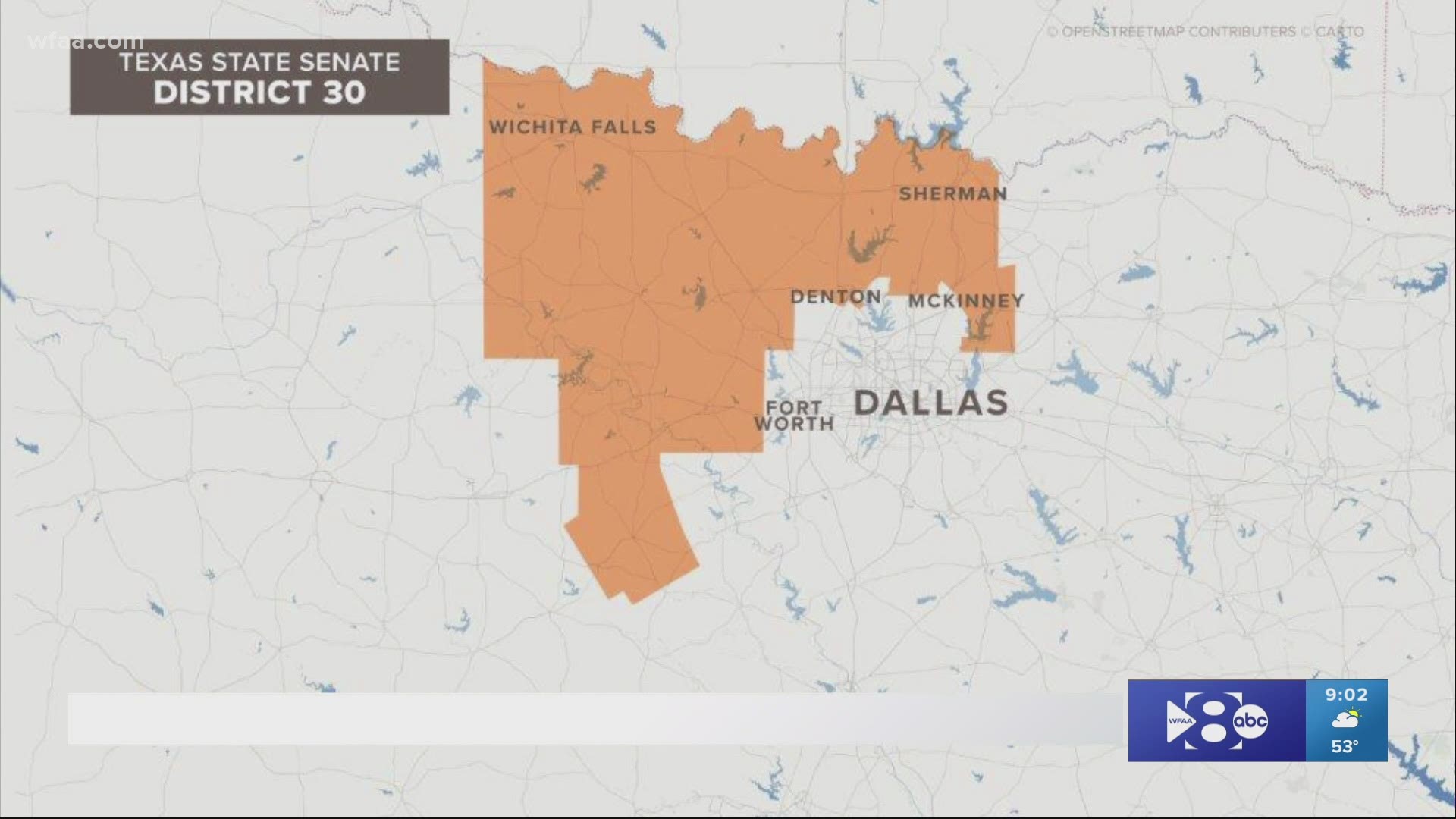Election season isn’t quite over in North Texas.
The Senate District 30 runoff is scheduled for Dec. 19 between state Rep. Drew Springer and Shelley Luther, the Dallas salon owner who was jailed earlier this year after she refused to close her business despite pandemic restrictions.
Voters should expect a bruiser between the two Republicans, who were separated by only 164 votes, out of nearly 69,000 total, in the special election.
Luther joined Inside Texas Politics this week and told Jason Whitely there is a definite rift in the Republican party.
“In Austin, they’ve got their set ways. It’s a good old boy system,” Luther said. “And they don’t want someone coming in who is not going to agree with everything that they say and is going to stand up for the people.”
Luther said she thinks the biggest problem with the party is the fact that the Republican platform has not changed for many sessions.
And she added the biggest difference between her and her opponent is the fact she’s not a politician.
“I don’t have any ties to Austin," said Luther. "I don’t have any political PAC money. I don’t have any lobbyist money.”
In terms of the fight against the COVID-19 pandemic, Luther said it still comes down to personal choice for individuals.
Even though Texas is now well above one million cases, she doesn’t think state government should be doing anything.
“We should leave those decisions up to the counties and the cities. They have a better idea of what’s going on there,” she said.
The winner of SD 30 will replace Pat Fallon, who was recently elected to the U.S. House in Texas’ 4th Congressional District.
Early voting for the runoff will begin Dec. 9.
Watch this week's entire episode of Inside Texas Politics below:
How Harris County's tactics may change future Texas elections
If the man who runs elections in the Houston area has his way, what happened in Harris County definitely won’t stay in Harris County.
Chris Hollins, who was the interim county clerk during the 2020 election, will be out of a job in a matter of days.
And after that, he said he plans to push for voting legislation in Austin that will make it easier for Texans to cast their ballots.
For example, he’s backing already-filed legislation that would formalize drive-thru voting throughout the state.
And he said he’ll fight any effort to make voting harder.
“There’s already been a bill filed to try and make sure that county clerks and election administrators cannot send out vote by mail applications. And so that’s absurd,” Hollins said on Inside Texas Politics.
Hollins also said he’s ready to help any election administrator who wants to copy the work they did in Harris County.
The county had a number of big changes from drive-thru and 24-hour voting, to strategically placed voting centers, such as in the medical district, which made it easier for medical professionals, many fighting the COVID-19 pandemic, to vote.
And after record turnout in Harris County, Hollins says he wouldn’t change a thing.
“We followed our plan. And our plan was to ensure people could cast their vote safely and to do so conveniently and with the peace of mind that their votes are going to be counted," he said. "And we did that.”
After Hollins steps down, an elections administrator will oversee election management and voter registration.
Last month, the Harris County Elections Commission named Isabel Longoria to the post.
Hollins say voters will be in good hands and can expect continuity as Longoria was a senior member of his team.
“She’s seen everything that we’ve done with her own eyes," said Hollins. "And in fact, she was the brains behind a lot of the operation.”
Former state representative says eliminating straight ticket voting worked
The lawmaker behind the state’s push to eliminate straight-ticket voting says the election proved it was a good idea.
“It worked out just like I hoped it would and thought it would and it had in other states and that is voters will vote down the ballot,” Republican Ron Simmons said on Inside Texas Politics.
Simmons is a former member of the Texas House of Representatives, who served three terms representing District 65 in Denton County.
He said he championed eliminating straight-ticking voting so voters would do their homework and make decisions all the way down a ballot.
Simmons said in 2016, there was a 3% overall drop-off from the top of the ticket down to the lowest statewide race on the ballot, which was the Court of Appeals.
In the most recent election, he said the drop-off was 3.4%.
Simmons said Democrats actually fared better than Republicans under the new system.
In 2016, he said Republicans actually saw a 2% increase in voting at the bottom of the ticket. But according to Simmons, in 2020, that increase was cut in half to only 1%.
Democrats dropped 8% in participation at the bottom of the ballot in 2016.
According to Simmons’ figures, that drop was only 6% four years later, meaning an additional 2% of Democratic voters finished the statewide portion of the ballot.
“So having straight-ticket voting in 2016 versus not having it in 2020 did not make a difference,” he said.

